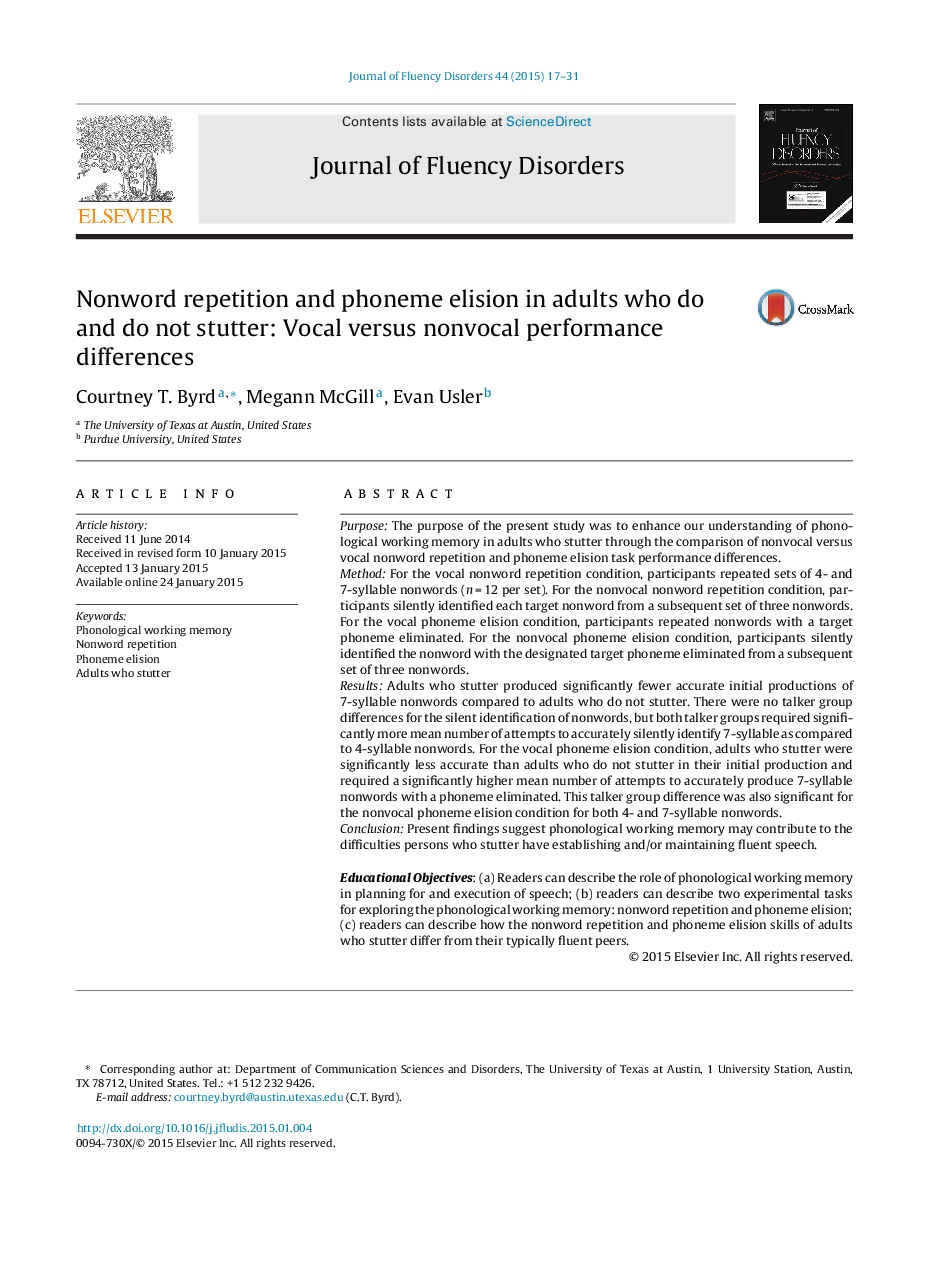| کد مقاله | کد نشریه | سال انتشار | مقاله انگلیسی | نسخه تمام متن |
|---|---|---|---|---|
| 911334 | 1473146 | 2015 | 15 صفحه PDF | دانلود رایگان |
• Explored phonological working memory via nonword repetition and phoneme elision in a nonvocal versus vocal condition.
• Both adults who do and do not stutter required more attempts and were significantly less accurate in their repetition of 7-syllable nonwords.
• Adults who stutter required more attempts and were significantly less accurate in their repetition of 4- and 7-syllable nonwords with a designated phoneme eliminated.
• No differences were observed in the nonvocal nonword repetition task but there were differences in the nonvocal phoneme elision tasks.
• Phonological working memory is compromised in AWS particularly in those conditions that are more cognitively challenging.
PurposeThe purpose of the present study was to enhance our understanding of phonological working memory in adults who stutter through the comparison of nonvocal versus vocal nonword repetition and phoneme elision task performance differences.MethodFor the vocal nonword repetition condition, participants repeated sets of 4- and 7-syllable nonwords (n = 12 per set). For the nonvocal nonword repetition condition, participants silently identified each target nonword from a subsequent set of three nonwords. For the vocal phoneme elision condition, participants repeated nonwords with a target phoneme eliminated. For the nonvocal phoneme elision condition, participants silently identified the nonword with the designated target phoneme eliminated from a subsequent set of three nonwords.ResultsAdults who stutter produced significantly fewer accurate initial productions of 7-syllable nonwords compared to adults who do not stutter. There were no talker group differences for the silent identification of nonwords, but both talker groups required significantly more mean number of attempts to accurately silently identify 7-syllable as compared to 4-syllable nonwords. For the vocal phoneme elision condition, adults who stutter were significantly less accurate than adults who do not stutter in their initial production and required a significantly higher mean number of attempts to accurately produce 7-syllable nonwords with a phoneme eliminated. This talker group difference was also significant for the nonvocal phoneme elision condition for both 4- and 7-syllable nonwords.ConclusionPresent findings suggest phonological working memory may contribute to the difficulties persons who stutter have establishing and/or maintaining fluent speech.Educational Objectives: (a) Readers can describe the role of phonological working memory in planning for and execution of speech; (b) readers can describe two experimental tasks for exploring the phonological working memory: nonword repetition and phoneme elision; (c) readers can describe how the nonword repetition and phoneme elision skills of adults who stutter differ from their typically fluent peers.
Journal: Journal of Fluency Disorders - Volume 44, June 2015, Pages 17–31
